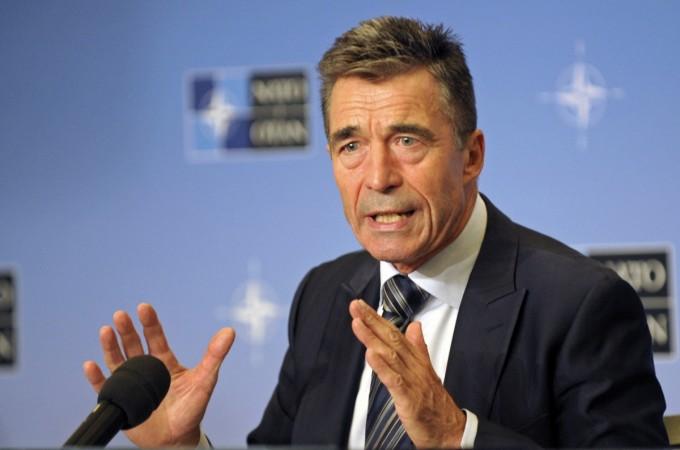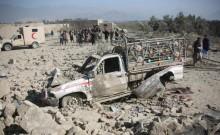
NATO is set to form a special force of 4,000 soldiers, called 'Rapid Response Force' designed to quickly go into action when a threat is detected. This plan comes as the military alliance beefs up its readiness in the face of increasing Russian aggression in Eastern Ukraine, which is now likely to spiral into a major conflict in the region.
As Russia appears to step up its military engagement in Ukraine despite repeated warnings from the West, leaders of the NATO military alliance are expected to approve the creation of the force – an action thought to be the most concrete response yet to the increased Russian 'invasion' into Ukraine.
The mission, which is expected to have a sizeable British contingent, and troops from Canada and other NATO members, is due to be unveiled at the NATO summit in Wales later this week. The special force, capable of launching counter-attacks within 48 hour's notice, will be supported with logistics and equipment pre-positioned in Eastern European countries closer to Russia, with plans for military exercises and deployments that are intended to make NATO's commitment of collective defense more easily accessible.
The Special Forces will have its bases, in Estonia, Latvia, Lilthuania, Poland and Romania, reports have suggested.
It will include Special Forces, air, naval and intelligence detachments to counter threats and deliberate breach of international law. Although the Alliance has not named Russia as the threat against whom the measures are being taken, it is clear that NATO has been stepping up its efforts against what it has called 'Russian intervention' in east Ukraine.
On Monday, NATO Secretary General Anders Fogh Rasmussen provided new details about the proposal, describing it as a "spearhead" designed to be deployed on just a few day's notice.
"This spearhead would be provided by allies in rotation, and could include several thousand troops, ready to respond where needed with air, sea and Special Forces support," he told a briefing at NATO headquarters in Brussels.
"We do believe there is a very strong deterrent effect from having such a response force," he said conceding to the fact that deployment is certain to be seen as provocative by the Kremlin. Under the 1997 Founding Act, which essentially ended the Cold War, NATO pledged to Boris Yeltsin's government that it would not have any permanent troop presence in any of the ex-Warsaw Pact states.
NATO, however insists that the bases will not break the pact, as they are not permanent, but will be designed to be there "for as long as it takes", the Independent noted.

















